Arianna Huffington on a New Definition of Success
The Western workplace culture—exported to many other parts of the world—is practically fueled by stress, sleep deprivation, and burnout. I had come face-to-face—or, I should say, face-to-floor—with the problem when I collapsed. Even as stress undermines our health, the sleep deprivation so many of us experience in striving to get ahead at work is profoundly—and negatively—affecting our creativity, our productivity, and our decision making. The Exxon Valdez wreck, the explosion of the Challenger space shuttle, and the nuclear accidents at Chernobyl and Three Mile Island all were at least partially caused by a lack of sleep.
And in the winter of 2013, the deadly Metro- North derailment caused when William Rockefeller, the engineer at the controls, fell asleep, focused national attention on the dangers of sleep deprivation throughout the transportation industry. As John Paul Wright, an engineer for one of the country's largest freight rail operators, put it, "The biggest issue with railroad workers is fatigue, not pay. We are paid very well. But we sacrifice our bodies and minds to work the long hours it takes to make the money, not to mention the high divorce rate, self- medicating, and stress."
Over 30 percent of people in the United States and the United Kingdom are not getting enough sleep. And it's not just decision making and cognitive functions that take a hit. Even traits that we associate with our core personality and values are affected by too little sleep. According to a study from the Walter Reed Army Institute of Research, sleep deprivation reduces our emotional intelligence, self- regard, assertiveness, sense of independence, empathy toward others, the quality of our interpersonal relationships, positive thinking, and impulse control. In fact, the only thing the study found that gets better with sleep deprivation is "magical thinking" and reliance on superstition. So if you're interested in fortune-telling, go ahead and burn the midnight oil. For the rest of us, we need to redefine what we value, and change workplace culture so that working till all hours and walking around exhausted become stigmatized instead of lauded.
In the new definition of success, building and looking after our financial capital is not enough. We need to do everything we can to protect and nurture our human capital. My mother was an expert at that. I still remember, when I was twelve years old, a very successful Greek businessman coming over to our home for dinner. He looked rundown and exhausted. But when we sat down to dinner, he told us how well things were going for him. He was thrilled about a contract he had just won to build a new museum. My mother was not impressed. "I don't care how well your business is doing," she told him bluntly, "you're not taking care of you. Your business might have a great bottom line, but you are your most important capital. There are only so many withdrawals you can make from your health bank account, but you just keep on withdrawing. You could go bankrupt if you don't make some deposits soon." And indeed, not long after that, the man had to be rushed to the hospital for an emergency angioplasty.











